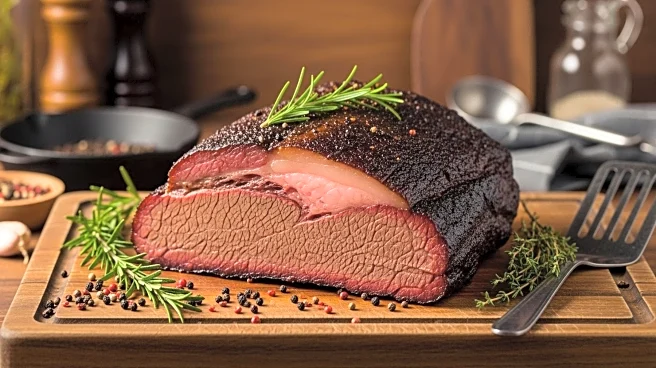Brisket's popularity in Jewish and Texan cuisine is no accident; it is the result of a rich history and culinary secrets that have shaped its journey. From traditional preparation methods to cultural influences, brisket's appeal lies in its ability to adapt and resonate with diverse audiences.
LesserKnown Details
One lesser-known detail about brisket is its historical significance in Jewish communities, where it was embraced for its affordability and adherence to dietary laws. The dish's preparation involves slow cooking, allowing the flavors to meld and the meat to become tender, creating a savory and aromatic experience.
Common Misconceptions
A common misconception about brisket is that it is solely a Texan dish. While Texas smoked brisket is celebrated for its smoky flavor, the dish's origins can be traced back to Ashkenazi Jewish communities in Europe. This misconception highlights the cultural influences that have shaped brisket's journey.
BehindtheScenes
Behind the scenes, brisket's popularity is driven by the skill and craftsmanship of pitmasters who have perfected the art of smoking meat. The meticulous smoking process imparts a distinct flavor, setting Texas smoked brisket apart from its Jewish counterpart. This dedication to quality and tradition is a key factor in brisket's enduring appeal.
Why It Matters
Brisket matters because it represents a fusion of cultural traditions and culinary practices, showcasing the power of adaptation and exchange. Its popularity in Jewish and Texan communities highlights the dish's versatility and appeal, encouraging Americans to explore and appreciate the rich tapestry of flavors that define the nation's cuisine.

















